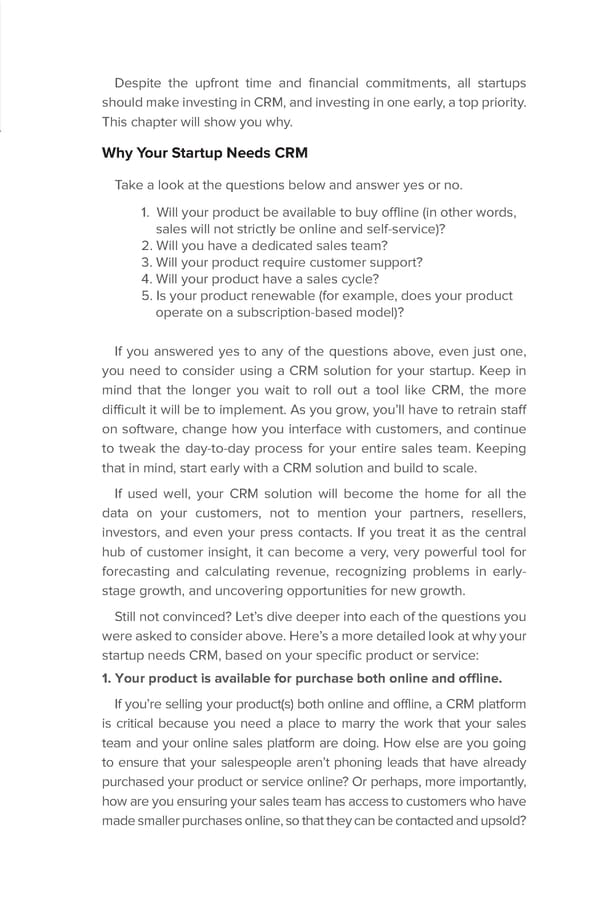Despite the upfront time and financial commitments, all startups should make investing in CRM, and investing in one early, a top priority. This chapter will show you why. Why Your Startup Needs CRM Take a look at the questions below and answer yes or no. 1. Will your product be available to buy offline (in other words, sales will not strictly be online and self-service)? 2. Will you have a dedicated sales team? 3. Will your product require customer support? 4. Will your product have a sales cycle? 5. Is your product renewable (for example, does your product operate on a subscription-based model)? If you answered yes to any of the questions above, even just one, you need to consider using a CRM solution for your startup. Keep in mind that the longer you wait to roll out a tool like CRM, the more difficult it will be to implement. As you grow, you’ll have to retrain staff on software, change how you interface with customers, and continue to tweak the day-to-day process for your entire sales team. Keeping that in mind, start early with a CRM solution and build to scale. If used well, your CRM solution will become the home for all the data on your customers, not to mention your partners, resellers, investors, and even your press contacts. If you treat it as the central hub of customer insight, it can become a very, very powerful tool for forecasting and calculating revenue, recognizing problems in early- stage growth, and uncovering opportunities for new growth. Still not convinced? Let’s dive deeper into each of the questions you were asked to consider above. Here’s a more detailed look at why your startup needs CRM, based on your specific product or service: 1. Your product is available for purchase both online and offline. If you’re selling your product(s) both online and offline, a CRM platform is critical because you need a place to marry the work that your sales team and your online sales platform are doing. How else are you going to ensure that your salespeople aren’t phoning leads that have already purchased your product or service online? Or perhaps, more importantly, how are you ensuring your sales team has access to customers who have made smaller purchases online, so that they can be contacted and upsold?
 CRM and Content Page 2 Page 4
CRM and Content Page 2 Page 4